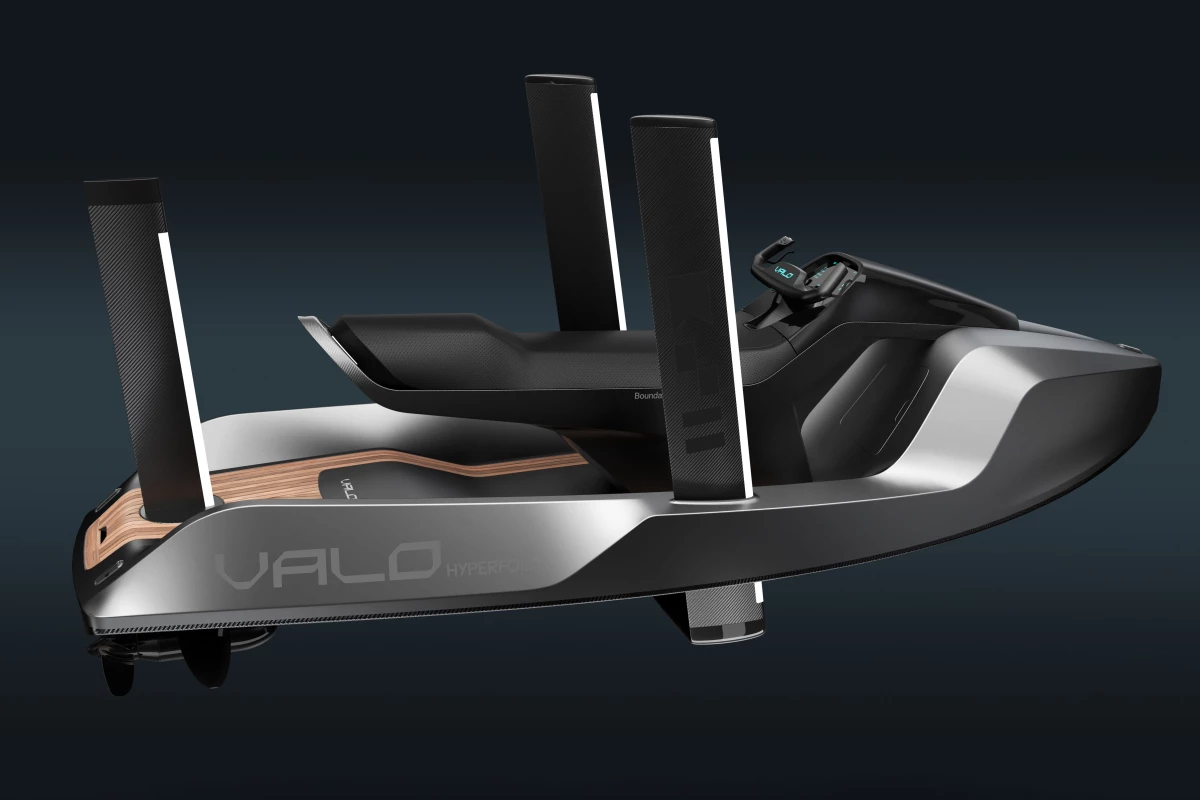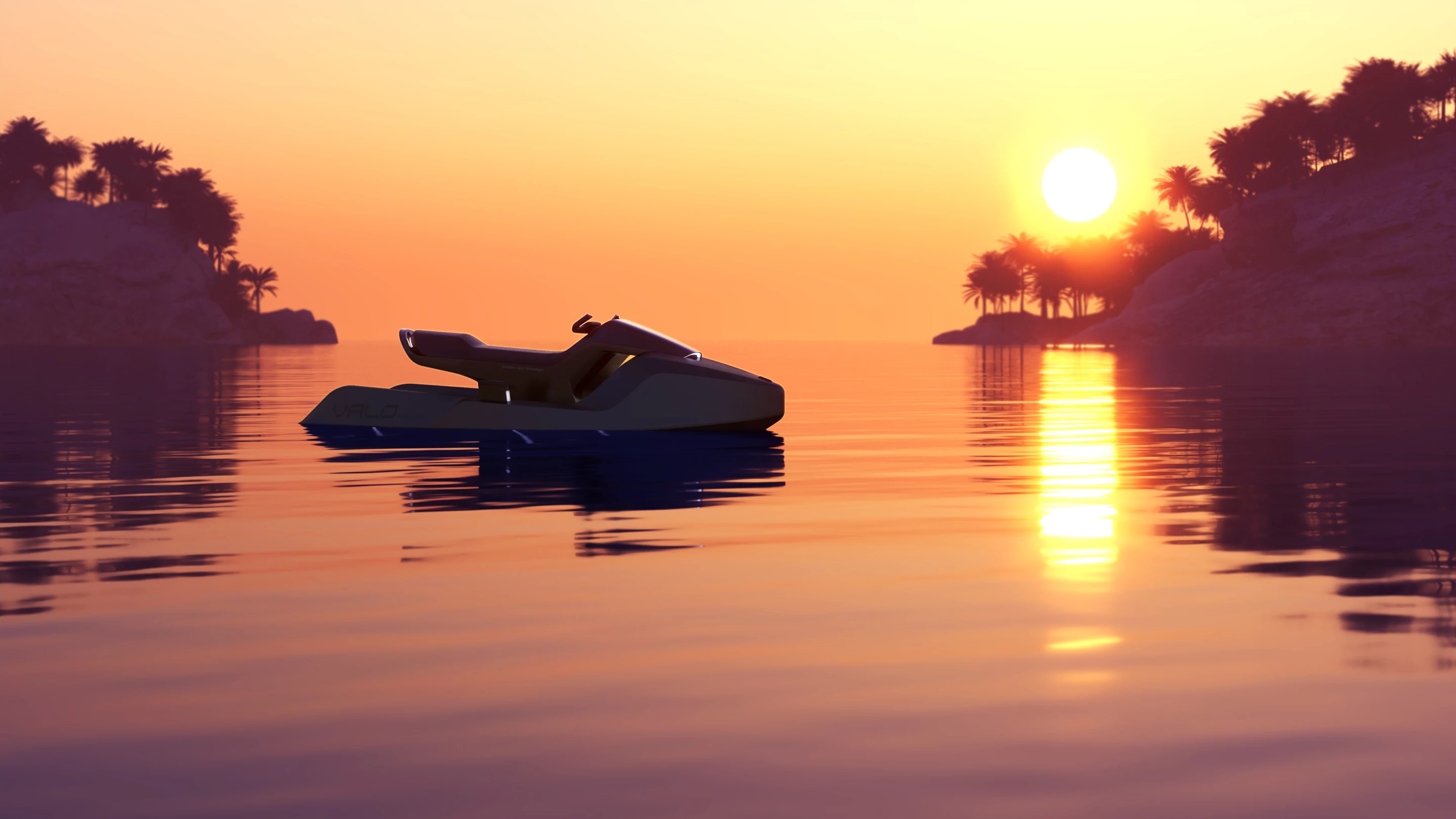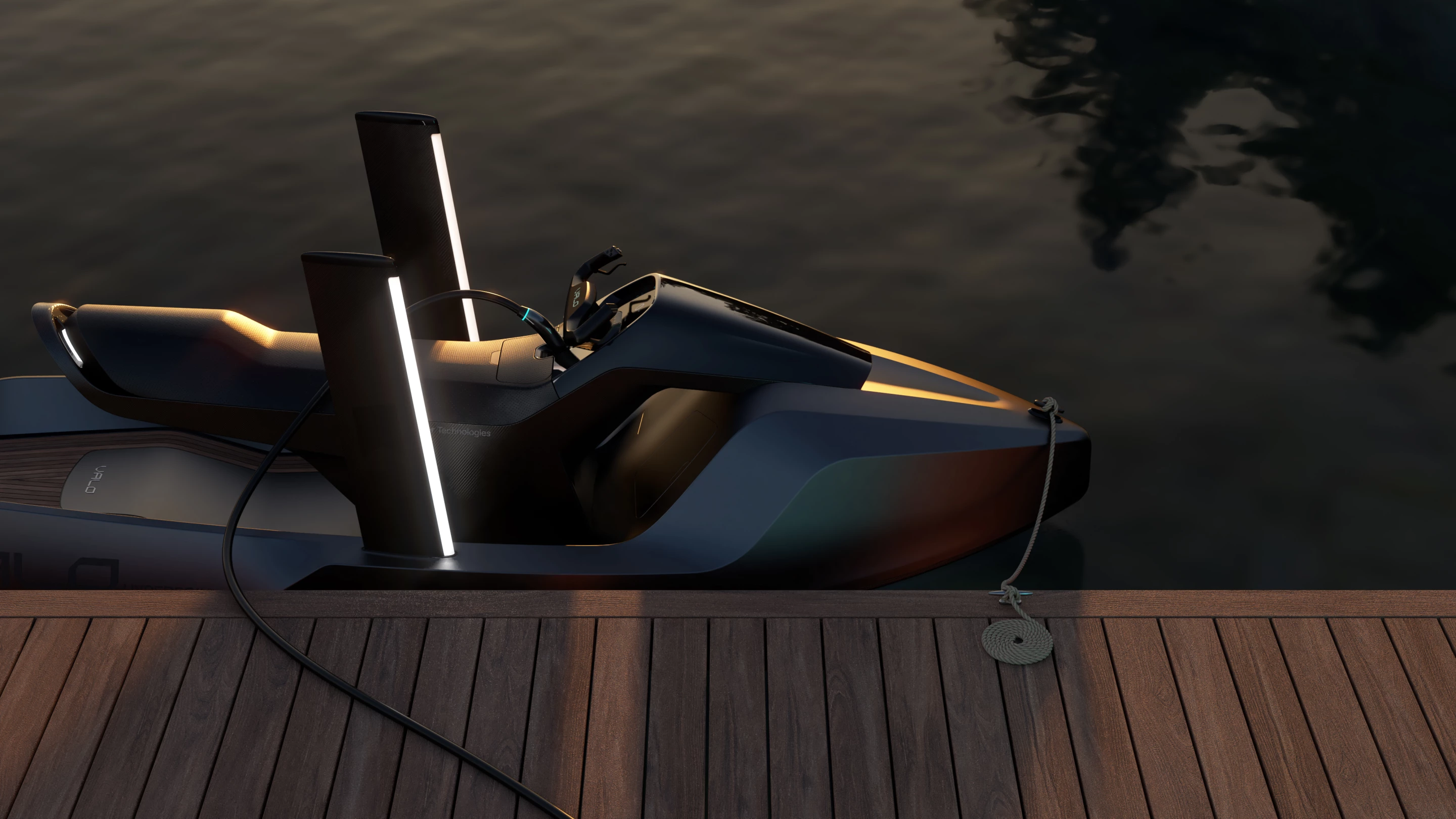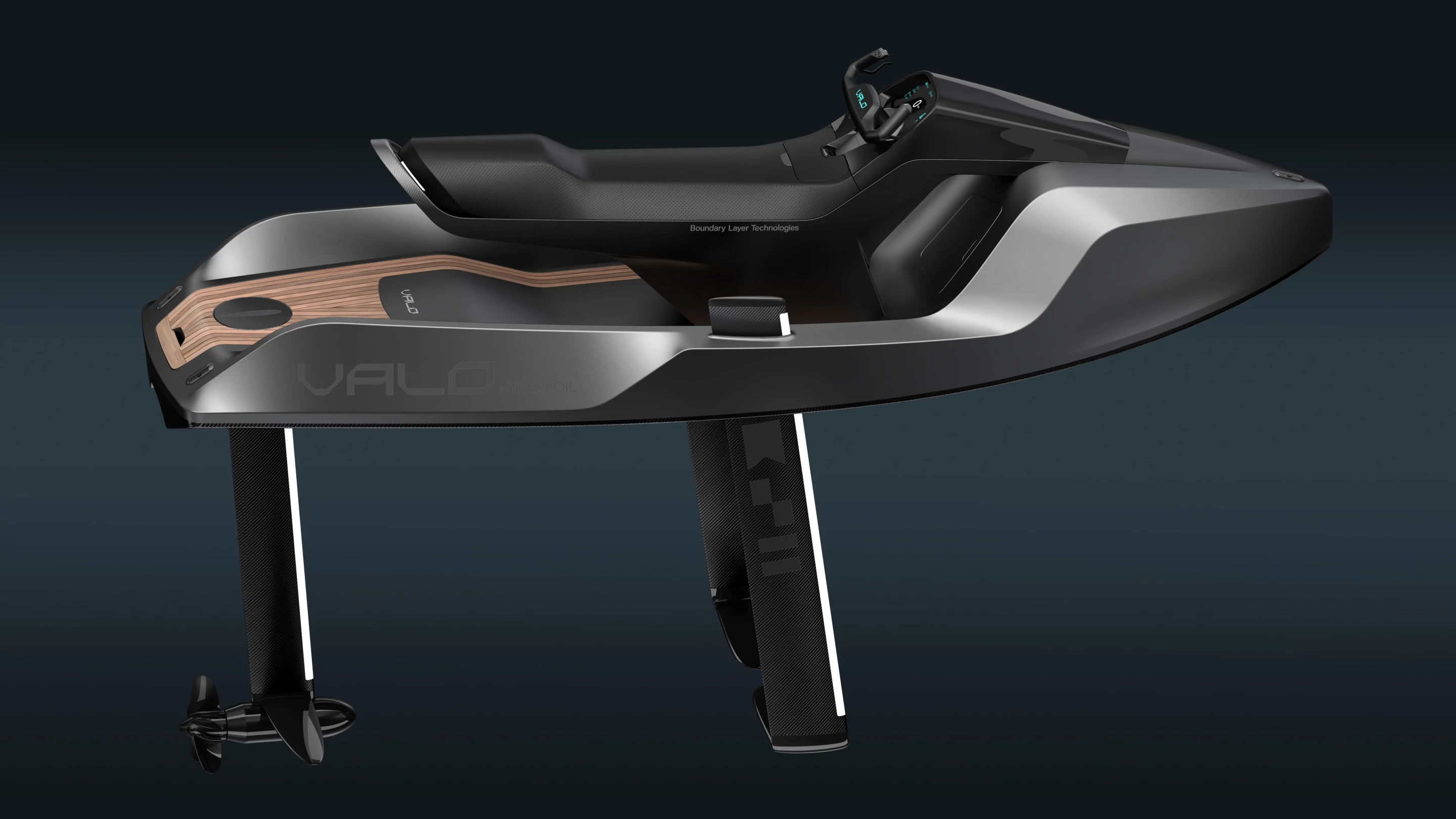The Valo Hyperfoil aims to kick off a new class of "ultra-performance" electric personal watercraft, a two-seat jetski that can rise out of choppy water on extendable hydrofoils, and go faster than any other electric or hydrofoiling craft you can buy.
The Valo doesn't compete with high-end jetskis on horsepower – where some of those beasts are making more than 300 horsepower, the Valo runs with just 80 kW, or 108 hp. On the other hand, it doesn't have to push its entire hull through the water, since it rises two feet above the surface on extendable hydrofoils, stabilized by "complex flight control software."
In low-drag hydrofoiling mode, powered by a five-blade electric propeller on the rear foil wing, it's targeting a top speed of 50 knots (55 mph, 93 km/h). This, says developer Boundary Layer Technologies, makes it the world's fastest production electric boat, as well as the world's fastest production hydrofoiling craft.
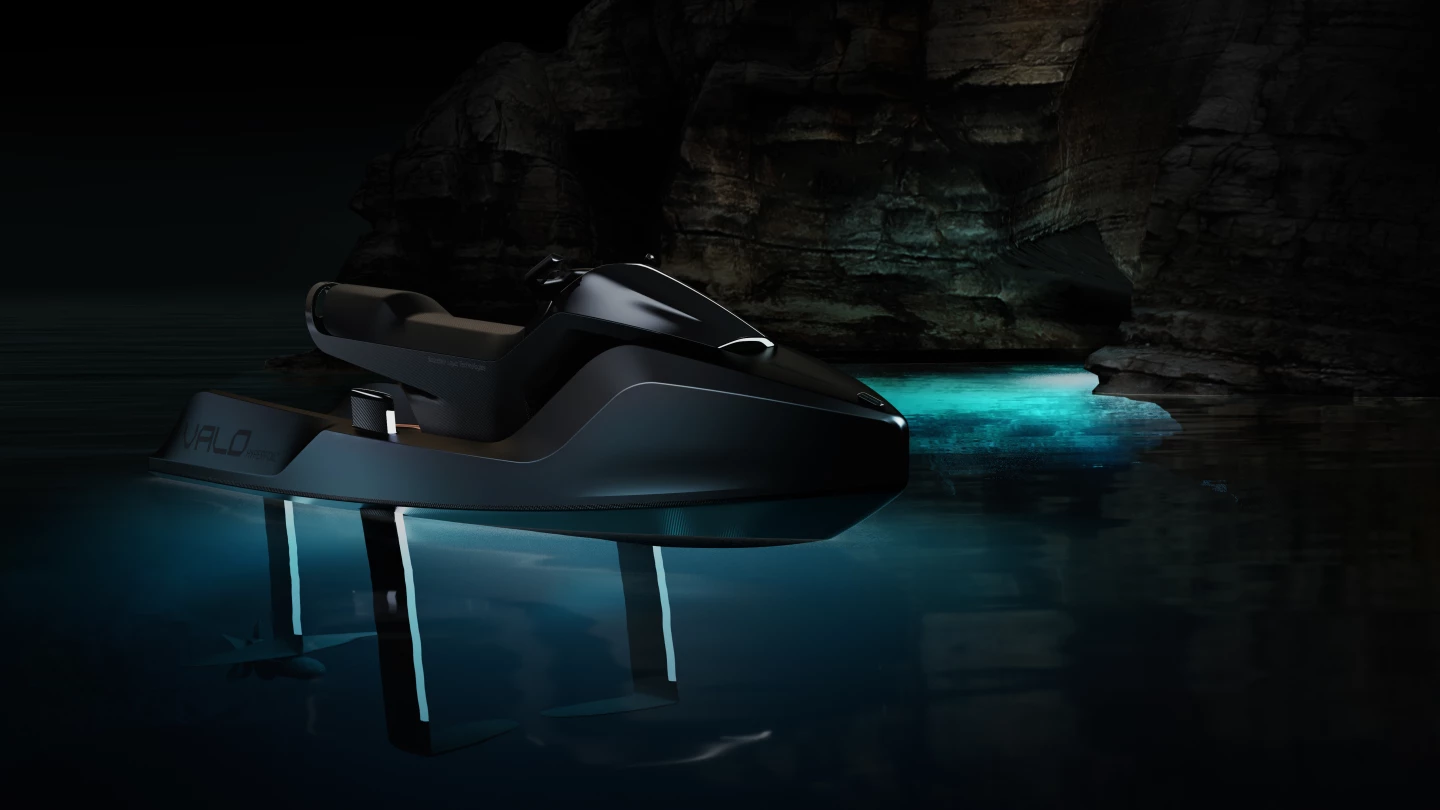
Now look, Say Carbon has already done this speed in front of witnesses with its 360-kW (483 hp) all-electric SAY 29E. And Alexeev's Hydrofoil Design Bureau has apparently already built a hydrofoiling Sagaris speedboat capable of just under 70 knots (70 mph/110 km/h). Either way, the Valo Hyperfoil will be extremely quick, and considerably less expensive than either of these machines.
Range and endurance aren't too bad: at a cruise speed of around 40 mph (64 km/h), a full battery will get you 1.7 hours or about 68 miles (107 km). Of course, you know and I know that "cruising" ain't how jet skis get used. So you'll want a charge point close by, and once hooked up, the Valo promises a 50% charge in 1 hour, or a 95% charge in 3 hours.
Boundary Layer has until this point concentrated on zero-emissions hydrofoiling designs for ferries and container transports; the Valo represents a chance to get something out to market quickly as the company's larger projects progress. Meanwhile, its "Pamplemousse" prototype 4-ton watercraft is already up and flying.
"The first Jetski was on the market 50 years ago this year, and it’s time for a major upgrade,” says Ed Kearney, founder and CEO of Boundary Layer Technologies. “Valo will be fast, agile, and tremendously exhilarating, all while being near silent and leaving zero wake. It will be like flying a stunt plane but on water. We see this a completely new form of water based mobility.”

At an expected price of US$59,000, the company says the first prototype should be finished soon and ready for customer test rides. Early "Founders Edition" orders are slated to begin deliveries in mid-2023, and full production machines will be ready in 2024.
"What we love about Valo is how fast we can get to market," says Kearney. "We are bringing all the technology we were developing for massive container ships and ferries and using it to deliver one hell of a recreational product. We are able to go so fast because we already have a solid platform of technology to build from, as well as having a truly world class team of engineers who have previously designed America's Cup hydrofoils, rockets and spaceplanes."
Source: Valo Hyperfoil
